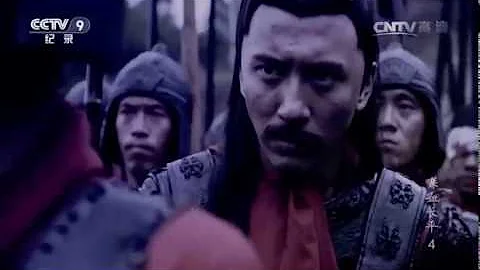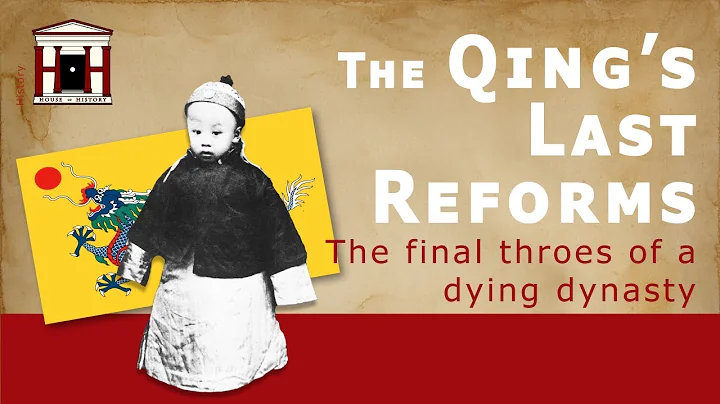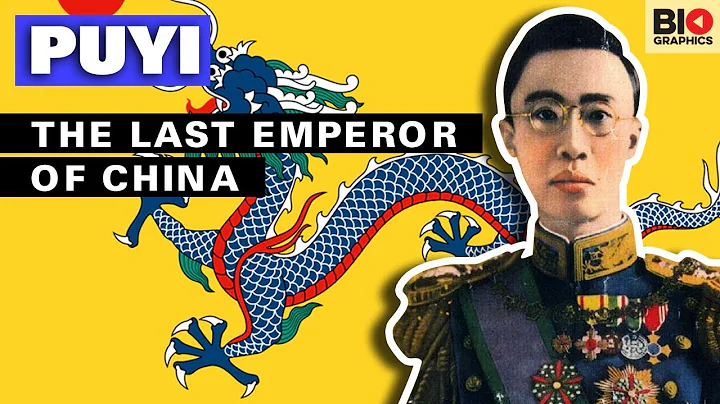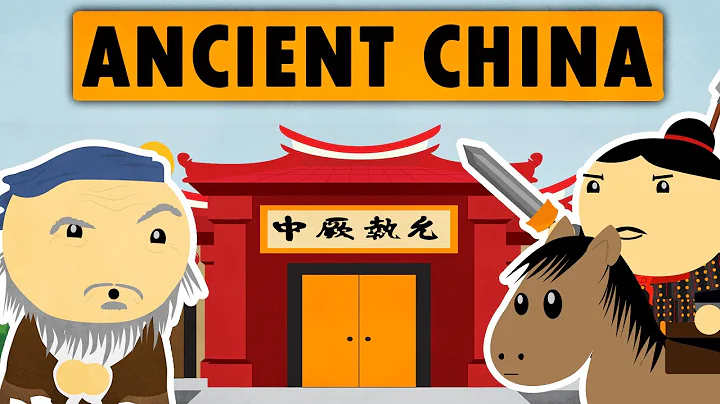In 353 BC, after the Battle of Guiling, the Wei State's military strength was greatly damaged, and the princes rose up to attack it. After fighting on many fronts, the Wei State was in a worrying situation.
At this time, the Qin State in the west implemented Shang Yang's Reform, and its national power was booming, which put a lot of pressure on the Wei State. In the east, Wei's old rival Qi Guo has repeatedly obstructed it, and in the north is Zhao Guo, while in the south it is also becoming increasingly powerful. Wei's situation is quite difficult.
In 341 BC, Wei Huihou gathered troops and horses, led by Pang Juan, and marched towards Xinzheng, the capital of South Korea.
In the previous war to attack Zhao, Wei was forced to pay gold and withdraw its troops because Qi sent troops to rescue Zhao; so in this attack on South Korea, will Qi come to the rescue again? Sun Bin and Pang Juan, both descendants of Guigu , meet again. What kind of story will happen?
Today's Xinzheng City, Henan Province, was the capital of South Korea during the Warring States Period. South Korea was relatively weak among the seven heroes of the Warring States Period. The king, Han Zhaohou, , then worked hard to govern and enabled the Legalist Shen Buhui to carry out reforms. He repaired government affairs internally and defended against powerful enemies externally, making South Korea politically clear and stable. The vassal states were therefore wary of South Korea and did not dare to invade at will.
In 349 BC, Wei Huihou, who was facing many crises, adopted the strategy of suppressing Zhao and Han, returning Handan to Zhao, and entered into an alliance with it on the bank of Zhangshui; later, he made an alliance with Qin Xiaogong in Tong. (near today's Chang'an, Shaanxi Province) to form an alliance with Qin and Zhao, and then concentrate on dealing with South Korea.
In 341 BC, the Wei State, which was separated from South Korea by a narrow strip of water, decisively launched an attack on South Korea. Under the command of Wei State General Pang Juan, Wei Wuzu marched forward bravely and approached Xinzheng, the capital of Han. For a time, the entire South Korea fell into In the midst of an unprecedented crisis.
However, no one could have imagined that there was a deep conspiracy behind this war. In this conspiracy, Wei and South Korea were both pawns trapped in it, and the planner was Qin.
▼
Although the Wei State was hit in the Battle of Guiling, its strength still existed. Qin State’s Daliang Zao Shang Yang analyzed to Qin Xiaogong that Qin State was not Wei’s opponent yet and must find ways to paralyze Wei Huihou and weaken Wei State. Only then could Qin have a chance to go eastward. So in 344 BC, Shang Yang set out for Wei to lobby Wei Huihou.
Shang Yang first praised Wei Huihou humbly, making him proud and conceited, and then further suggested that Wei Huihou plot to become the king and become the real overlord. Under Shang Yang's scheme, Wei Huihou, who had always wanted to become king, was ready to take action.

So soon after Shang Yang's lobbying, the self-aggrandizing Marquis Wei Hui invited Qin, Zhao, Song, Lu, Wei and other vassal states to meet for an alliance in Fengze (now south of Kaifeng, Henan), and made a show of Emperor Zhou , trying to improve his status and establish Wei's rule among other countries.
However, in this alliance, South Korea, which was also a country of the Three Jins and had always followed Wei's lead, did not come to participate in this alliance. This made Wei Huihou extremely unhappy and prompted him to attack Korea later. Excuses are provided.
"It is said that Han Zhaohou himself planned to go, but his subordinates advised him not to go, saying that Wei Huihou openly revealed his ambition to become king, which would inevitably offend the public, and Qi, Chu, and other countries would be dissatisfied, and Wei would In this way, Han Zhaohou did not participate in this alliance. "
In 341 BC, the furious Wei Huihou sent general Pang Juan to attack Korea, breaking through the territory along the way and approaching the Korean capital Xinzheng (now Xinzheng City, Henan Province). ), Han Zhaohou could not help but panic, and hurriedly sent envoys to Qi for help.
After receiving the letter from the Korean envoy, King Qi Wei summoned his ministers to plan a response.Above the court, Prime Minister Zou Ji was the first to say, "If South Korea is not rescued, South Korea will be defeated by the Wei State and merged into the Wei State. The growth of the Wei State will be detrimental to the Qi State, so it is better to send troops to support South Korea as soon as possible."
When King Wei of Qi was about to adopt Zou Ji's suggestion, Sun Bin put forward a different opinion, pointing out: Wei's attack on South Korea has the potential to destroy South Korea, and the firepower of its attack must be unstoppable. Moreover, now South Korea and Wei The war has not yet begun. If troops are sent to rescue South Korea at this time, the Qi army will definitely suffer heavy losses. It is equivalent to bearing Wei's attack for South Korea, but Qi will be taking orders from South Korea. "Sun Bin's words made King Qi Wei fall into deep thought.
Later, Sun Bin suggested to King Qi Wei: It is better for the king to " be a close relative of Han and inherit Wei's shortcomings ", first agree to South Korea's request for rescue, and then After that, they stood still and waited until both Wei and South Korea were defeated. When South Korea was defeated, it would definitely ask Qi for help again. At this time, Qi's sending troops would be like sending help in the snow, and it would definitely forge a deep friendship with South Korea. At the same time, it can also avoid prematurely suffering the attack of Wei Wuzu, which can be said to kill two birds with one stone."
The key point of Sun Bin's implementation is " Yin knot Han's kiss ". It is precisely because Qi promised South Korea that it would send troops to assist South Korea that it prompted South Korea to do its best to resist Wei, so that it could use the power of South Korea to tire Wei. As a result, Wei was easily defeated by Qi, that is, "Inheriting the shortcomings of the Wei Dynasty late".
King Qi Wei was very pleased with this, so he followed Sun Bin's plan and privately promised the Korean envoy that he would send troops to rescue him, and sent the envoy back to Korea.
▼
In 341 BC, South Korea faced an imminent attack by the Wei State. Knowing that Qi State would definitely send reinforcements to help, South Korea felt confident and confident, so it tried its best to resist the Wei army's attack. The Wei army sent its troops south this time, aiming to destroy Han in one fell swoop. The soldiers of Wei fought bravely to take the lead and were unstoppable.
However, South Korea was defeated in all five battles, but reinforcements from Qi State have not yet arrived. The extremely anxious Han Zhaohou quickly sent an envoy to Qi State to bring reinforcements, saying that he would obey Qi State's orders from now on.
King Wei of Qi saw that more than half of the casualties in Han and Wei had been lost, and it was the best time to attack, so he appointed Sun Bin as his military advisor, led by generals Tian Ji, Tian Ying, Tian Pan, and went to the rescue. South Korea.

In this rescue of South Korea, Sun Bin still adopted the strategy of "encircling Wei and rescuing Zhao". The Qi army still marched directly towards Daliang (now Kaifeng, Henan), the capital of Wei, forming a siege of Daliang.
The situation in the capital of Wei was critical. Pang Juan, who was attacking Xinzheng, had no choice but to withdraw his troops and lead his army back to Daliang. The siege of Xinzheng was lifted, and South Korea was able to avoid the crisis of national collapse.
In this attack on South Korea, Wei's strategic intention was to annex South Korea to consolidate Wei's position in the Central Plains. The reason is that the land of Wei State stretches across the east and west, and is restricted by Han and Zhao in the north and south directions; and because the previous attack on Zhao State (354 BC) failed, they turned to plan to annex South Korea in the south to consolidate itself.
However, after the painful experience of being attacked by Qi State in the previous attack on Zhao State due to the lack of defense in the country, the same mistake was repeated in this attack on Korea. It must be said that this is related to Wei Huihou's personal factors of being self-willed and eager to dominate. Inseparable.
Wei Huihou mobilized troops to conquer South Korea, hoping to bring Wei back to the list of great powers by destroying South Korea. At the beginning of the war, the Wei army won many victories and gradually approached Xinzheng, the capital of South Korea, with victory in sight. Unexpectedly, Qi State suddenly sent troops to intervene at this time, causing all Wei Huihou's efforts to fall short.
Thinking of the previous Battle of Guiling, it was also because of Qi's obstruction that the Wei Kingdom The Battle of Handan returned in vain. New and old grudges were superimposed. Wei Huihou couldn't help being very angry, and he mobilized the country's troops angrily. , led by Pang Juan, quickly pursued the Qi army, and was bound to fight Qi to the death.
▼
When Sun Bin learned that the Wei army had come to fight, Sun Bin could already imagine that the headstrong Wei Huihou was burned out by his anger, so he suggested to Tian Ji, " The soldiers of the three Jin Dynasties are brave and light in nature, and their uniform names are Cowardice. Those who are good at fighting can take advantage of the situation. " means: The soldiers of the Three Jin Dynasties have always been known for their bravery and looked down upon the Qi army, thinking that the Qi army was cowardly, but those who are good at fighting can take advantage of the situation. Sun Bin suggested that the Qi army avoid the sharp edge of the Wei army and retreat temporarily to lure the enemy deeper.
"Show what you can't do when you can, show when you don't use it" - " Sun Tzu's Art of War "
This sentence in "The First Plan" of Sun Tzu's Art of War means being able to fight but deliberately showing weakness, preparing to attack but deliberately showing Pretend to retreat. Sun Bin learned and used it flexibly, and deliberately pretended to retreat when the Wei army came to attack. At the same time, he also adopted the virtual and real principle of "moving the enemy with profit and waiting for him with death" as mentioned in the "Military Situation Chapter", using benefits to lure Pang Juan to pursue him, and then secretly laid an ambush.
Therefore, when Pang Juan led the Wei army to pursue the Qi army in a mighty manner, the Qi army retreated as if it knew it was outnumbered. After learning the news, Pang Juan was so excited that he pursued the victory and averted the shame of the Battle of Guiling.
At this time, Sun Bin came up with another plan and asked the soldiers to build a large number of stoves during the march. First, he created the illusion that there were 100,000 people eating. The next day, he deliberately reduced the number of stoves to 50,000 people, and so on. .
When Pang Juan, who was following closely behind, saw that the number of stoves used by the Qi army to eat was decreasing, he thought that the Qi soldiers were timid and had begun to flee without fighting before they fought. This unexpected discovery made Pang Juan ecstatic, so he Ordered to pursue Qi Jun in the direction of escape.

Sun Bin, who had devised a plan to reduce the number of soldiers, was sure that Pang Juan would see the situation in his favor and would chase him along the way. He had already ordered his subordinates to set up an ambush at Maling Road , waiting for Pang Juan's men to arrive and ambush him.
Where Maling Road is located, the gorge is deep and steep, making it easy to get in and out, making it an excellent place to set up an ambush.
"There are many opinions about where the ancient battlefield of Maling is. "Historical Records" once recorded, "There is Maling more than 60 miles northeast of Zhencheng County, Puzhou. The gorge is deep and steep and can be used for ambushes." "This is where Pang Juan was defeated." '. According to this record, Maling refers to the old city of Pu County in today's Shandong Province. But at the same time, there are always other voices. "
At this moment, Sun Bin, who was sitting in the army, frowned and rubbed his hands. Holding his knees. He and Pang Juan originally came from the same school. They studied the art of war with Guiguzi . Unexpectedly, they were framed by his senior brother Pang Juan and became disabled for life. It was also God's will that the former classmates reunited on the battlefield, but each had his own master.
Sun Bin expected that Pang Juan would arrive at Maling (today's Dazhang Town, Shen County, Shandong Province) at dusk, so he led his army to arrive here first and ordered people to peel off a big tree beside the road. At the same time, he ordered the archers to ambush in the road, and agreed that at sunset, when Pang Juan's troops entered Maling Road, they would fire thousands of arrows. .
As Sun Bin expected, when the sun was about to set, Pang Juan chased the Qi army all the way to a valley, but suddenly there was no trace of the Qi army. In the twilight, surrounded by mountains, at the narrow Maling Pass, Pang Juan led his army step by step into Sun Bin's encirclement... The crows circling above his head were frightening, and Pang Juan couldn't help but rush to his head with blood, and even felt slightly dizzy. , he knew that what he faced would be a fierce battle.
The clouds cover the sun, and there is chaos between heaven and earth. This is the time when people and horses are exhausted, and it is also the time when the enemy is most aggressive. The road ahead was getting harder and harder to walk. The surrounding woods were like a huge maze, making it difficult to figure out where the ambush was. Pang Juan felt chills running down his back, and he began to regret his decision to rush forward.
At this time, Pang Juan found a faint line of writing on a big tree in front of him, so he walked closer and took a look, only to see that a section of the bark had been peeled off, and the exposed white tree had the words " Pang Juan died" Under this tree are six powerful characters "".

Pang Juan was shocked and thought: This must be Sun Bin's doing. From this point of view, there must be an ambush here, and he may be in trouble.
At this moment, there was a cry of killing from all around. According to Sun Bin's order, the Qi army had been waiting here for a long time. Like hunters, they waited patiently for all their prey to enter the canyon before launching an attack. In an instant, rocks rolled down, the Qi army fired thousands of arrows, and Pang Juan's camp suddenly burst into screams.
At this moment, Pang Juan knew that he had been tricked, but he regretted it too late, so he had to go into battle with his sword and kill with all his strength. However, the death knell of fate has sounded, and the loss of Wei's status as a great power is destined to start with the failure of a war and the sacrifice of one person, that person is Pang Juan.
On the battlefield, Pang Juan rushed left and right, fighting the enemy bravely, and wanted to carve out a bloody path. However, he suddenly felt a cold in his chest. He lowered his head, and a sharp arrow penetrated his chest. The feeling of the sharp weapon piercing his heart was so clear. , he struggled painfully, but still fell slowly.
After Pang Juan's death, the Wei army was leaderless and defeated, and the Qi army won easily.
"Sun Bin's retreat strategy, reducing the arrogant enemy in Zao, setting up an ambush in Maling, and a series of actions to lure the arrogant enemy are actually a set of strategies and tactics. 1. If you don't go straight to the main beam, you can't make Pang Juan return his troops; 2 , If you don't retreat, you can't set up an ambush in the narrow terrain of Maling; 3. If you don't reduce the firepower, you can't let Pang Juan take advantage of the victory and advance quickly. "
This war will have a profound impact on the entire development pattern of the Warring States Period. The "Battle of Maling " had a great impact.
In the Battle of Maling, the Wei State was defeated again, and it has been unable to recover since then, and South Korea has also been weakened after this catastrophe.
As the ultimate winner of the Battle of Maling, Qi State not only succeeded in making South Korea surrender to itself, but also harvested a large amount of loot. Through this battle, it resettled the Three Jin Dynasties, gained great prestige, and became a powerful country in the East.
▼
At the same time, the Qin State in the west has been growing stronger for 20 years since Qin Xiaogong appointed Shang Yang to carry out reforms in 361 BC. At this time, the three Jin, Zhao, Wei and Han fought with each other and suffered losses.
Therefore, Shang Yang suggested that Qin Xiaogong take the opportunity to attack Wei. He believed that Qin was like a human heart disease to Wei, and he wanted to get rid of it quickly. Moreover, the two countries are bordering each other. When Wei was strong, it often invaded Qin to the west. Now that Wei was defeated miserably in the Battle of Maling, it was a good time to attack Wei.
So in 340 BC, which was the second year of the Battle of Maling, when Wei was seriously weakened, the three kingdoms of Qin, Qi and Zhao jointly launched an attack on Wei and captured Wei's general, Prince Yan [áng]. , and took the opportunity to occupy a large area of Wei's territory.
The Wei State was defeated by Qi twice before, and its general Pang Juan was killed in battle. It was defeated by Qin again, and its son Yan was taken prisoner. The country's power was declining day by day. In order to alleviate the crisis, Wei Huihou launched active diplomatic activities. At the same time, he also began to pay generous gifts and recruit talents, but in the end it was difficult to restore the country's decline.
At this time, the Qin State had already encompassed the territory of Hexi , forming a commanding position over the countries in the Kanto region. However, Han and Wei on the Kanto front line were gradually weakening and could no longer withstand the Qin State's attack. At the same time, Qin's peek at the Central Plains also awakened the Kwantung kingdoms that were fighting each other, and gradually formed the diplomatic form of a "joint vertical" alliance, that is, uniting the Kwantung kingdoms to resist Qin.
“Although the Battle of Maling was a battle between Qi and Wei, in terms of the overall situation, this battle was actually a turning point in the entire Warring States period.After the Battle of Maling, Wei and South Korea lost their national power and lost the ability to protect the Central Plains, which opened the door for Qin to go east. In the end, Qin destroyed the six kingdoms. Tracing back to the source, the Battle of Maling was the source of everything. "
"Sun Tzu's Art of War" said: " A master cannot be angry and raise an army; a general cannot be angry and go to war! " That is: as a monarch, you cannot send troops because of anger, and as a general, you cannot start a war because of anger.
If Wei Huihou, after defeating the Korean army and returning to the court, controlled the strong troops in Daliang, facing Qi Bing's move to lure the enemy, he would not be rash If he pursues, he will be able to continue to control the Central Plains with the power of holding tigers in the mountains, and Wei's hegemony will also be maintained; the general Pang Juan has fought countless battles and has rich combat experience, but he pursued rashly to claim credit, which ultimately led to Maling's death. The war resulted in the loss of troops and humiliation of the country, and the destruction of Wei's grand hegemony.
When Wei and Han were attacking each other, the Qin State, which was rising in the west, took the opportunity to raise troops to reap the benefits.
After the decline of the Three Jin Dynasties, Qin State moved to the east. The trend of Hangu Pass has been formed. For it, the biggest obstacle will be the State of Qi to the east. However, the State of Qi is located on the Shandong Peninsula, far away from the Central Plains. It is difficult to contain the trend of Qin's eastward expansion...
This battle The history from now on will eventually lead to a unified situation.
For more original information, please pay attention to the official account update.
This article has been selected as the documentary creation content of iQiyi solo column "General History of the Chinese War" [This article is authorized. Reprint from the WeChat public account of "Zi Zheng Shuo Modern History", please do not reprint without permission]





















